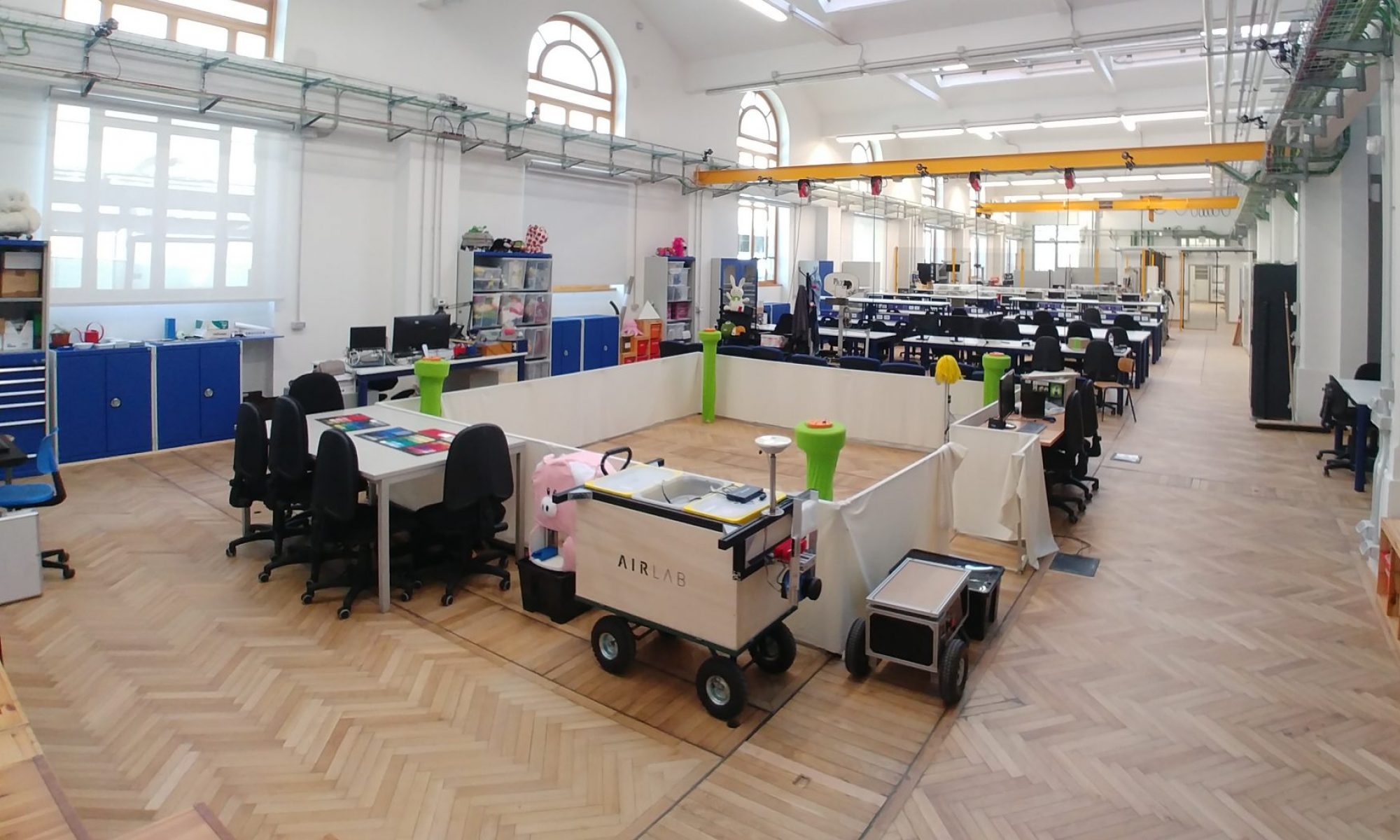Full Professor —
His present research interests include human-robot interaction, affective computing, robot for people with disabilities, robogames, entertaining robots, robot-based experience and performance, intelligent data interpretation, development of autonomous robotic agents, machine learning. He has published more than 250 peer-reviewed papers in international journals, books and international conference proceedings, including a book about robots playing with all, also with people with disabilities.
Since 1989 he has created more than 100 autonomous robots with his collaborators and students. Among the recent awards, he won the Kazuo Tamie Award for a robot to support therapy with autistic children and obtained an Honorable Mention at CHI2025 for the interactive experience with a non humanoid robotSince 1989 he has created more than 100 autonomous robots with his collaborators and students. Among the recent awards, he won the Kazuo Tamie Award for a robot to support therapy with autistic children and obtained an Honorable Mention at CHI2025 for the interactive experience with a non-humanoid robot.
He is developing robots since 1996 focusing on interacting robots since 2006. In particular, he developed several robots that can autonomously play with people with disability, thus exploiting the power of play to develop capabilities and satisfy special needs. As extensively described in the recent book he wrote with a colleague expert in special teaching (Bonarini, Besio, 2022 Robot Play for All: Developing Toys and Games for Disability), play has a fundamental role in the development of people, while robots bring to the play experience a unique set of features such as the possibility of an active interaction, the possibility to sustain a clear and reliable cause-effect relationship, the possibility to be considered as toys, so reducing the cognitive load to interact with an entity, especially critical for people with disabilities. Robots can support all the four types of playing (practice play, pretend play, construction play and rule play) in one-to one, triadic or multi-player situations. Moreover, therapists, teachers, and even co-players can take control of the robot, so using it as an avatar for playing situations that may require interactions that the players (e.g., autistic children) would not like to activate.
The developed robots are all intended to provide a rich set of possibilities at a limited cost, adopting the most appropriate technology at the level required to obtain the desired results. They range from simple, yet engaging robots showing three simple reactive behaviors, to robots embedding AI hardware and software able to detect the type of actions done by people interacting with the robot through gestures and touch. All the developed robots have the possibility to move, most of them in space, and for effective interaction it was needed to study how to implement interesting movements that can be easily interpreted by the interacting person. Moreover, affective computing techniques have been applied to implement emotional acts and to interpret emotional cues from the interacting people.
The mentioned robots have been tested and delivered in several institutions from schools, to care centers and hospitals, with a record of continuous activity without any maintenance interventions of more than 4 years.
In 2015 he co-founded the company NovaLabs (www.novalabs.io), based on the research results developed with doctoral students in collaboration with ST Microelectronics: a HW/SW system consisting of modules that allow to implement plug-and-play and basic control of professional and autonomous devices and robots in a very short time.
Institutional page: https://www.deib.polimi.it/ita/personale/dettagli/100410
Personal website: https://bonarini.faculty.polimi.it/

